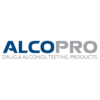NTSB Recommends 0.05% Legal Alcohol Limit
The National Transportation Safety Board (NTSB) recently made several recommendations intended to reduce the number of alcohol-related automotive deaths, including a recommendation for all 50 states to lower the legal blood alcohol content level (BAC) to 0.05 or less. (Click here to access AlcoPro’s Drink Wheel to see how many drinks it takes to reach 0.05 intoxication level.) Other recommendations include stiffer punishments, better enforcement of existing laws, and an increased use of technology to significantly lower the number of alcohol-related automotive deaths nationwide.
According to the NTSB, research shows cognitive and visual functions are much lower when a person’s BAC reaches 0.05, increasing the risk of a serious crash. In the U.S., most states and territories have BAC limits of 0.08, whereas internationally, more than 100 countries have BAC limits at or below 0.05.
“The research clearly shows that drivers with a BAC above 0.05 are impaired and at a significantly greater risk of being involved in a crash where someone is killed or injured,” stated Deborah A.P. Hersman, NTSB Chairman, in a release.
While automotive fatalities overall have declined since the mid-1990s, the NTSB says alcohol-related crashes have continued to account for 30 percent of all annual auto crashes. In the U.S., crashes caused by alcohol-impaired drivers kill nearly 10,000 people per year, and of the 173,000 injured each year, 27,000 suffer incapacitating injuries. The NTSB also reports that almost 440,000 people have died in alcohol-related crashes in the past 30 years.
“Most Americans think that we’ve solved the problem of impaired driving, but in fact, it’s still a national epidemic,” said Hersman. “On average, every hour one person is killed and 20 more are injured.”
The NTSB says that sobriety checkpoints, increased visibility of law enforcement, and targeted media campaigns are effective in deterring impaired driving. Another recommendation is for police to use passive alcohol sensors that detect alcohol in the air. Administrative license suspension, where arresting officers can revoke a driver’s license at the time of a DWI arrest, is another recommendation. More accountability for offenders, such as intensive monitoring, treatment for underlying disorders, alcohol testing, and graduated sanctions are also included in the recommendations.
